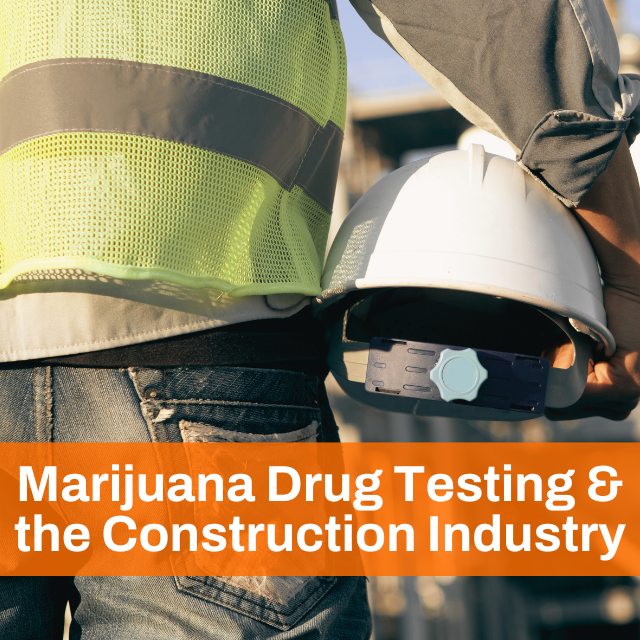Marijuana drug testing in California: Why some companies exempt from AB 2188 still plan on following its guidelines

Assembly Bill 2188 was signed into law in September 2022. When it goes into effect on January 1st, 2024, private employers in California will be barred from taking action against employees or job candidates on the basis of tests that detect non-psychoactive metabolites of THC. This means that most employers in the state will be barred from using urine and hair tests to screen for marijuana use.
Although employers in the building and construction trades are exempt from this constraint, many are still leaning towards adopting policies that would conform with the law. Why?
Buzzkill recently attended an event hosted by a construction industry association in California and came away with two possible answers to that question.
First, the culture around marijuana use in the US has shifted alongside the wave of state-level legalization seen over the last decade. Marijuana use among young adults has been described as a “new normal,” with over 42% of people age 19-30 having used in the last 12 months, compared with 27.5% two decades ago.
For better or worse, the number of young people who self-report using marijuana in the last year has increased by 50% since 2003. Data support the notion that legalization begets more cannabis use. If the trend towards legalization continues on its current trajectory, we will soon see a world in which a majority of Americans aged 19-30 report having used marijuana in the past year. Employers in the construction industry willingly adopting the provisions set forth in AB 2188 reflects this reality. Although they are not legally required to stop testing for past use (e.g., they can still use urine and hair testing), these employers have to compete for employees in the same talent pool as everyone else in California. If they continue to test for off-duty marijuana use, young jobseekers may gravitate towards employers who don’t.
The future of any industry relies on attracting new talent. Regardless of their legal exemption from AB 2188, the construction industry is not exempt from the need to appeal to the new generation of jobseekers.
Attracting new talent is half of the equation. The other half consists of retaining existing employees, who possess years or decades of knowledge and experience and cannot be easily replaced.
Many people we spoke with at the construction industry event either had or knew of a story like this one:
Dave, an excavator operator, bumped his equipment into the side mirror on someone’s truck. Policy dictates that Dave has to take a post-accident drug test. It turns out Dave had used marijuana a week ago at a party over the weekend. Because policy mandates a urine test, he tests positive.
Dave’s employer has no desire to fire him, nor does his manager. He’s been with the company for 20 years, has a spotless record, and by all accounts is a reliable employee. Nobody believes that his marijuana use from the week prior contributed to the accident. Nonetheless, he is let go after the incident – his employer knows if they make an exception for him, they risk opening themselves up to liability from anyone else who had previously been let go under the company’s drug-free workplace policy.
In this situation, the urine-based drug tests deliver an outcome that nobody wanted. Dave, his employer, his supervisor, and his union are all dissatisfied with the outcome.
A policy based on prohibiting workday marijuana use, which Buzzkill’s technology specifically identifies, would have yielded a different outcome, one that everybody involved would have been satisfied with.
Employers understandably want to maintain drug-free workplaces, especially in safety-sensitive industries. Deterring drug use among the workforce mitigates risk, lowers insurance costs, reduces sick days, etc. At the same time, employees want to be sure that the person working alongside them is fit for duty. Testing for marijuana in a way that deters on-the-job use while accommodating the new normal of recreational use off-duty strikes the right balance.
For the reasons articulated above, companies in the building and construction trades in California, despite being exempt from the requirements established in Assembly Bill 2188, have expressed interest in technologies that only identify workday marijuana use. No employer in the state is immune to the pressures exerted by recreational marijuana legalization, legal exemptions notwithstanding.
Feel free to subscribe or get in touch with us if you would like to have a conversation about bringing workday marijuana testing into your workplace.


